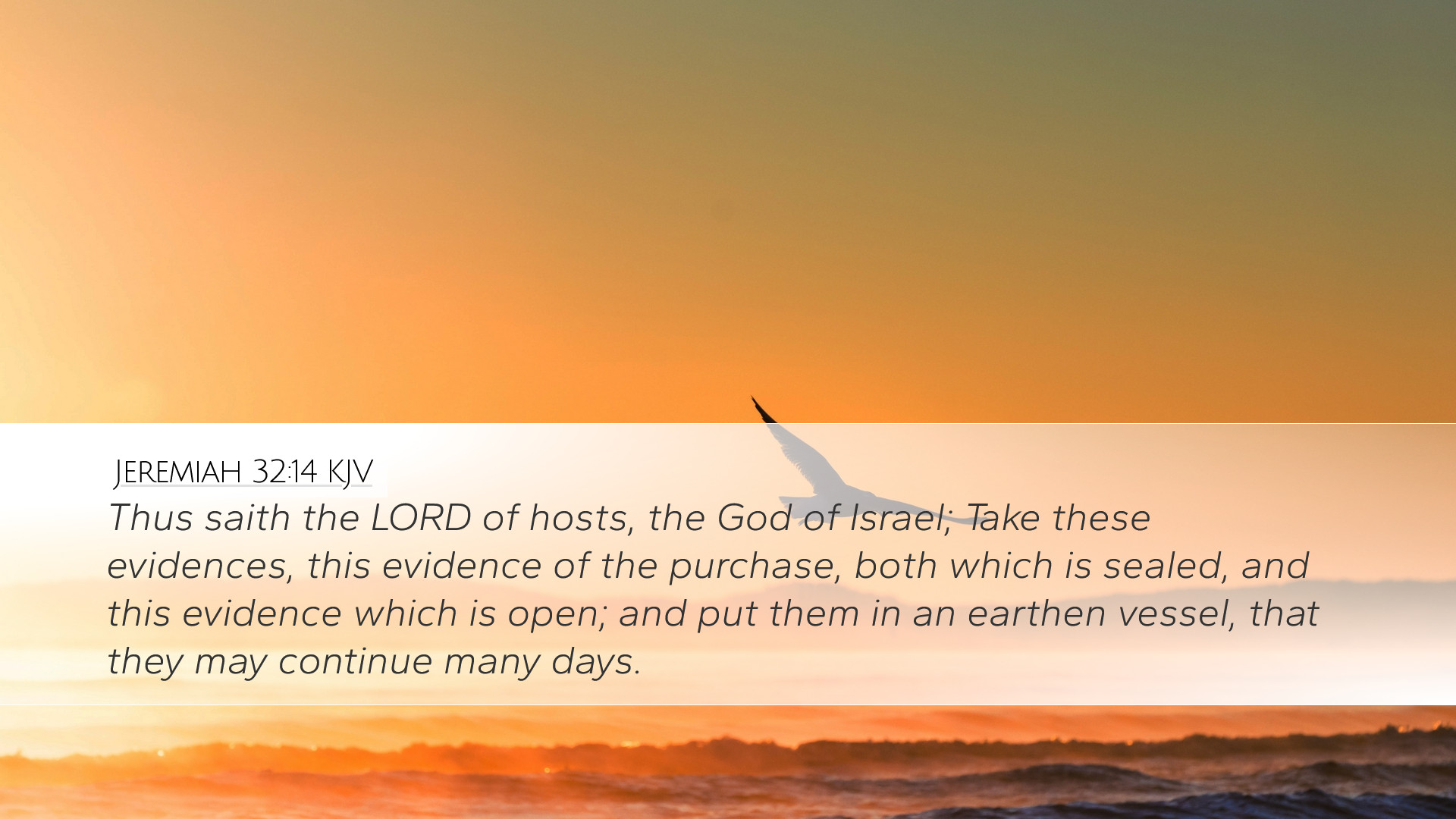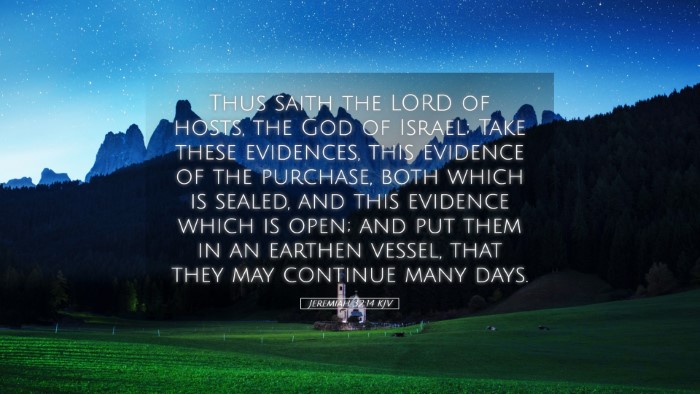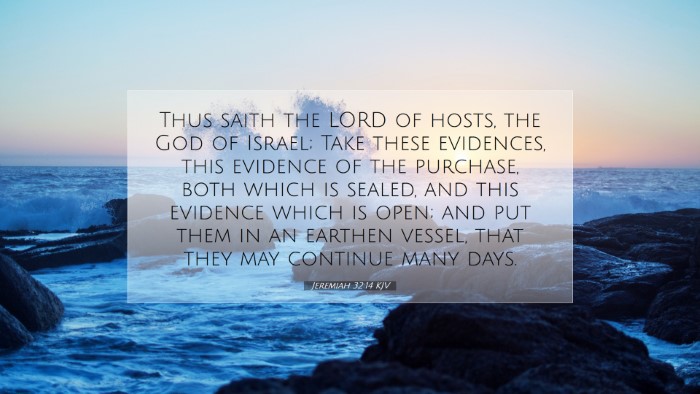Commentary on Jeremiah 32:14
Jeremiah 32:14 states, "Take these deeds, both this purchase deed, which is sealed, and this open deed; and put them in an earthen vessel, that they may continue many days." This verse encapsulates a significant moment in the life of the prophet Jeremiah, and it carries profound implications for understanding divine prophecy, human agency, and the hope of restoration.
Contextual Background
To fully appreciate this verse, we must consider the broader context of Jeremiah's ministry. By the time of this transaction, the people of Judah were facing impending exile due to their persistent disobedience to God. Jeremiah, often referred to as the weeping prophet, had been proclaiming the imminent doom that awaited Jerusalem. Yet, in the midst of this bleak circumstance, God prompted him to perform a seemingly illogical act of purchasing a field.
Theological Implications
This action symbolized hope and God’s long-term plan for restoration. Below are the insights gathered from respected biblical commentaries:
-
Matthew Henry's Commentary:
Henry highlights that Jeremiah's purchase was a sign of faith. It demonstrated confidence in God’s promise that, despite the imminent destruction, a remnant would return, and the land would once again be theirs. This act foreshadows the eventual restoration of Israel and reinforces the theme of redemption throughout Scripture.
-
Albert Barnes' Notes on the Bible:
Barnes elaborates on the significance of the “earthen vessel.” He explains that placing the deeds in an earthen vessel exemplifies the transient nature of earthly affairs and the enduring nature of God’s promises. This action also signifies the preservation of God’s Word, emphasizing that His covenants and promises shall stand firm despite current adversities.
-
Adam Clarke's Commentary:
Clarke draws attention to the dual deeds—the sealed and the open deed—remarking that they represent both the certainty of the transaction and the visibility of God's promises. He notes that these deeds underscore the principle of hope: by securing the land, Jeremiah was expressing faith in God's eventual restoration of His people and their inheritance in the Promised Land.
Lessons for Today
The message of Jeremiah 32:14 goes beyond its historical context; it provides valuable lessons for contemporary believers:
- Faith in Adversity: Just as Jeremiah acted in faith despite the surrounding doom, we are called to trust in God’s promises, even when circumstances seem dire. This requires a deep-rooted assurance that God’s plans for us are ultimately good (Jeremiah 29:11).
- The Importance of Hope: The imagery of purchasing a field while facing exile offers a poignant reminder that hope can coexist with despair. Believers are encouraged to hold onto the hope of restoration that God offers.
- Persistence in Promises: Just as the deeds were to be preserved "for many days," our recounting of God’s faithfulness can serve as a source of strength and encouragement. Remembering and sharing testimonies of God's steadfastness can fortify our communal faith.
Conclusion
Jeremiah 32:14 stands as a powerful testament to faith amidst uncertainty. As we reflect on the commentaries, we are reminded of God’s unyielding covenant with His people and the certainty of His promises. This passage not only informs us of God's past dealings with Israel but also encourages modern believers to hold fast to the hope of future restoration. The act of placing the deeds in an earthen vessel serves as a metaphor for preserving faith in God’s promises, making it a vital lesson for pastors, students, and theologians alike.


